Newborn babies are delicate and need a lot of care and attention, but many parents are inexperienced in raising their babies and do not know how to take better care of them, so they will take many detours,babies can easily become ill if they are not properly cared for on a daily basis. Therefore, new parents should be aware of the following precautions for the daily care of their newborn babies in order to take better care of them.
- Skin care
1.Bathing:
Before the umbilical cord has crusted over and fallen off, babies should not be given a bath but a dry wash and wipe. After the umbilical cord has fallen off, you can take a tub bath and use a non-irritating bathing gel for babies. After bathing, wrap your baby in a large towel to soak up the moisture from your baby’s body and apply baby powder to the folds of the skin.
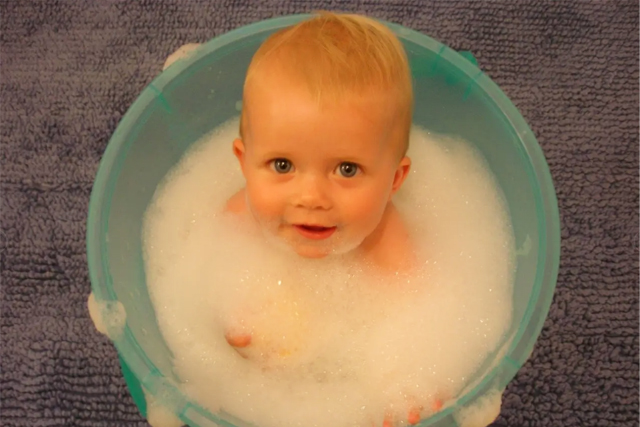
2.Buttock:
To prevent residual urine from irritating the buttocks and causing redness, many mothers use a warm towel to dry their baby’s buttocks every time they change their little one’s nappy, but repeated use of towels often generates a lot of bacteria. When caring for your baby’s skin, try to use disposable baby wipes and apply a little buttock oil after use.
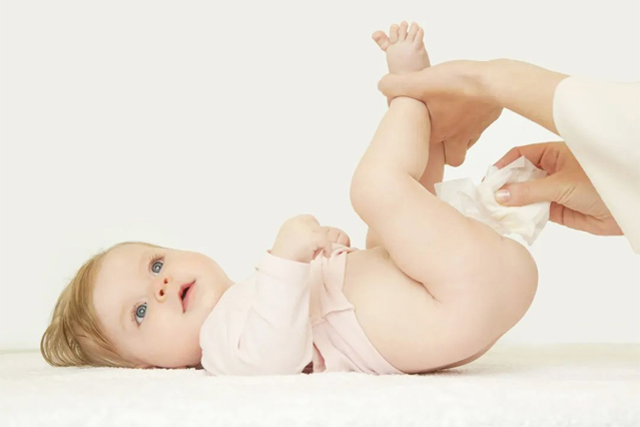
- Infection prevention care
1.Mothers should always wash their hands or wipe them with special antiseptic wipes before carrying their babies to avoid bringing germs from their hands to their babies.
2.Keep your baby in a safe environment and avoid contact with your baby if someone in your family has a contagious disease.
3.No outside visitors are allowed in the nursing mother’s room.
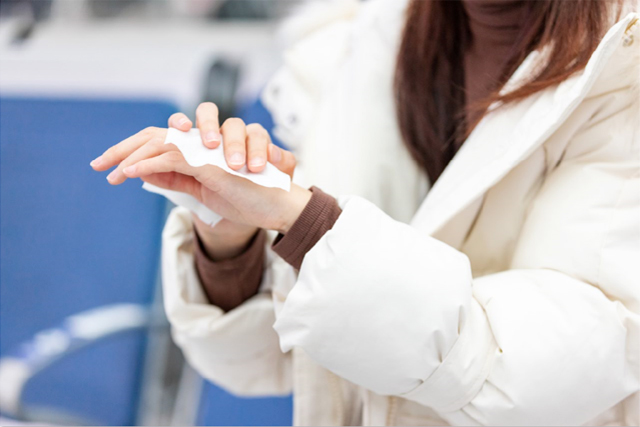
- Warmth care
Babies are sensitive to outside temperature differences, especially during the colder months when it is important to keep them warm. In winter, it is best to keep your baby’s room at a temperature of 24 degrees Celsius to 25 degrees Celsius, which is best for your little one’s health.
- Five senses care
1.Pay attention to the cleanliness of your baby’s face and five senses and do not dig in the external ear canal or nasal cavity.
2.As the mucous membrane of the baby’s mouth is delicate and vascular, it is easily infected by abrasions. When cleaning your baby’s mouth, do not wipe hard and do not use a needle to pick the small white spots on the gums. It is recommended to use hand and mouth wipes for babies.
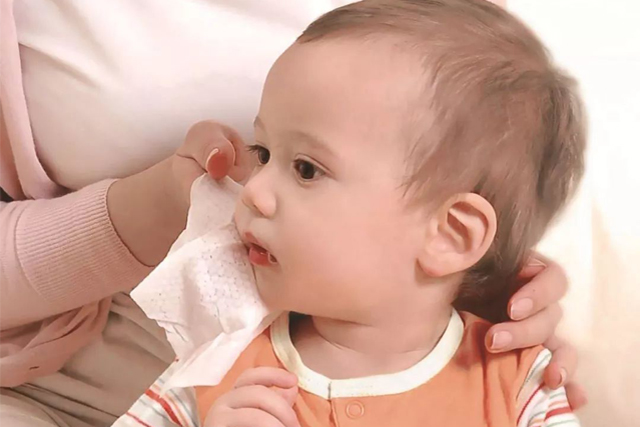
- Private parts care
Babies have sensitive skin and need to have their nappies changed promptly. If they are not changed promptly, the baby’s private parts or buttocks will become red and this will affect the baby’s skin,when cleaning your baby’s private parts, it is best to use warm water with disposable baby wipes.
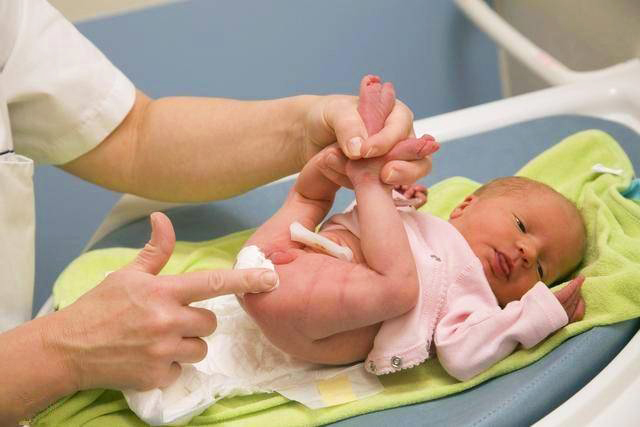
- Nasal congestion care
For mild nasal congestion, you can apply hot towels to your nose, smoke your nose with hot air, and pay attention to the temperature and humidity in your home to avoid sudden heat and cold,if the nasal cavity is clogged with secretions visible to the naked eye, you can gently massage the sides of your baby’s nose to promote the discharge of nasal crusts; if the crusts are too dry, you can use physiological sea saline spray or physiological saline drops to drop into your baby’s nasal cavity to soften it, and then suck it out with a nasal aspirator.
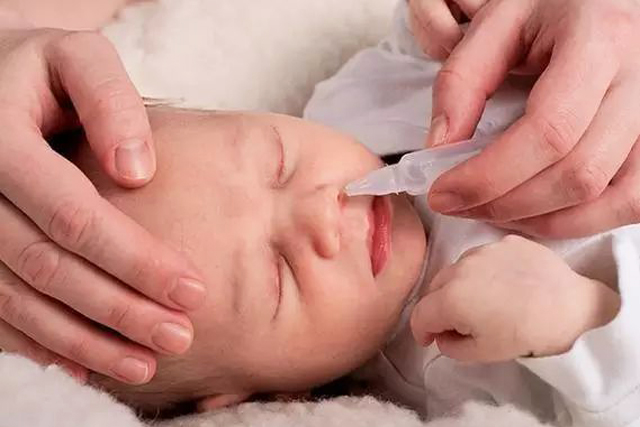
- Spitting up of milk care
Do not pick up your baby immediately if he or she is spitting up, as this can easily lead to choking. For infants who spit up frequently, the best position after feeding should be on a mattress with a 15-30 degree slope, lying the body on its side.

- Colic care
It mostly occurs in the first 3 months of life. You can rub the baby’s tummy clockwise to help defecation and exhaustion, pay attention to the warmth of the abdomen, and take the form of an aeroplane hold.
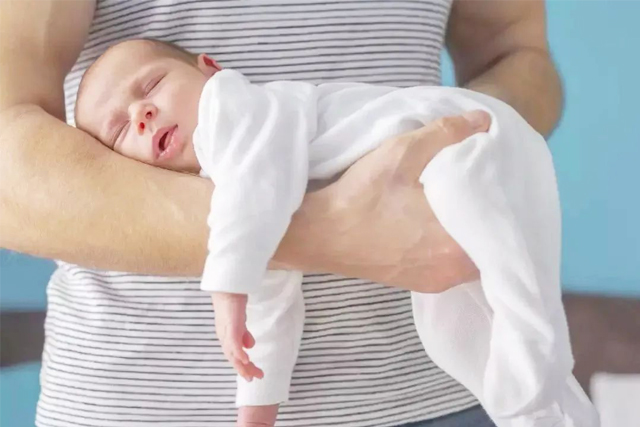
- Fever and physical cooling care
Physical cooling can be used below 38.5°C, with plenty of fluids, reduced clothing and warm baths or rubs. The baby’s diet should be based on a more nutritious liquid diet. Alcohol or ice packs are not recommended, but above 38.5°C, seek medical attention and follow medical advice.
- Eczema care
The cause of eczema is not heat and humidity, but allergies, skin development etc. It presents as a flaky, oozing, basal red rash with a pronounced itch, but it is important not to attribute any red rash on the skin to eczema, and if it is severe medical attention is recommended.
How to care for your baby’s eczema
- If your baby’s skin is red and cracked and your baby rubs the skin intentionally, this indicates the beginnings of eczema, so scrub gently with warm water and apply moisturiser. Use chemical toiletries sparingly and avoid using harsh topical medications.
- If the colour of your baby’s eczema does not differ from his or her skin colour and he or she does not rub the eczema area as often, this means that he or she is almost well enough, but daily care is still very important as a means of preventing eczema from coming back. You will need to wash with warm water and apply moisturiser daily.
- Eczema needs to be moisturised and dry skin should be avoided as much as possible. Children with eczema are likely to have skin barrier dysfunction and moisturisation is crucial to promote the recovery of the skin barrier and moisturisers should be used consistently on a daily basis.
- Ventilate the room frequently, keep it fresh and not too hot, and choose cotton clothing that is breathable and sweat-absorbent, and avoid scratching and rubbing as much as possible.
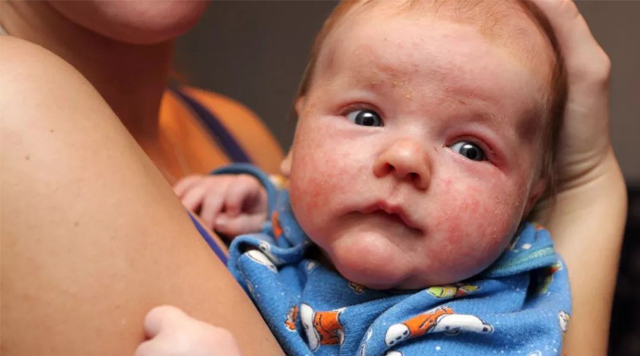
- Umbilical hernia care
The bulge in the umbilicus is called an umbilical hernia. Although the reason for this is related to the incomplete development of the abdominal muscles in the umbilicus, intestinal distention (infantile colic) is a major contributing factor to the umbilical hernia. Frequent crying during colic and flatulence raises the pressure in the abdomen and causes the intestine to protrude outwards to form an umbilical hernia. When the flatulence subsides, the muscles in the umbilical hernia area grow inwards, closing the umbilicus and disappearing on their own within one year of age.
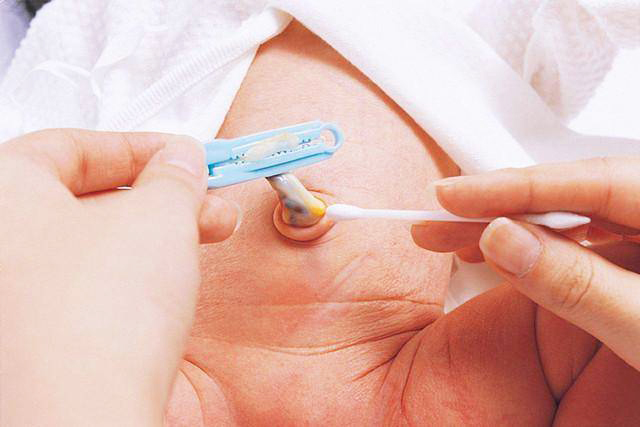
- Jaundice care
Most newborns are born with jaundice and once the jaundice index is high, the doctor will recommend that the child be given blue light. Of course, with timely care, normalisation can be quickly achieved through physical means. When babies have mild jaundice, more sunlight and breastfeeding can be used to relieve it.
- Sleep care
1.light: baby sleep to turn off the lights, too strong light on the baby will produce light pressure, resulting in the baby’s eyes and ciliary muscle can not rest, over time will affect the baby’s vision development, this, the mother can adjust the indoor light, through the contrast between light and dark, so that the baby slowly learn to distinguish between day and night. This also effectively solves the problem of babies sleeping day and night.
2.Feeding: If your baby is overfed, he or she will easily become bloated and uncomfortable; starving is even worse. Your baby’s tummy will be bloated after eating milk, so mothers and fathers can pick your baby up and gently pat his or her back or rub his or her abdomen to help him or her exhaust.
3.Temperature and humidity control: the most suitable temperature for babies to sleep is 25-28°C. If the temperature is too high, babies will be irritable, and if the temperature is too low, babies will be woken up by freezing; and the best humidity is 60-70%,if the humidity is too low, the baby’s nasal passages tend to dry out and cause congestion; if the air is too humid, the baby will feel sticky and uncomfortable.
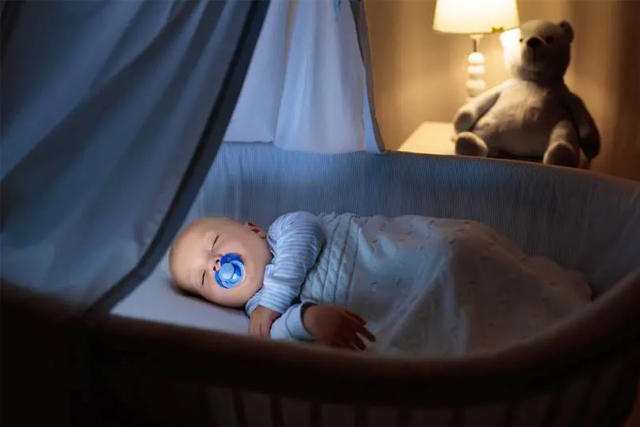
- Frequency of bathing
When the weather is hot, wash once a day, when it is cold, wash once every 2 to 3 days, too many baths can easily make the baby’s skin dry, remember to reduce the use of alkaline bath products for small babies, you can also use disposable baby wipes to clean the baby’s body, bath time is best to control within ten minutes.
- Pillow baldness in babies
Pillow baldness is usually caused by the baby lying down more, and the head rubbing around is easy to fall off,remember not to make the pillow too hard and note that pillow baldness is not necessarily a calcium deficiency, so don’t blindly give your baby calcium supplements.
- Eating hands
Sucking is an innate reflex in babies and toddlers, but hand eating and pacifier sucking are self-soothing expressions that can be difficult to stop and withdraw easily. For this reason, babies who frequently eat their hands can be given a sucking pacifier, the outer round piece of which can effectively resist any abnormalities in teeth and mouth shape that may result from frequent sucking, and attention should also be paid to the cleanliness of babies and toddlers’ hands,when selecting wipes, pay attention to the wipe ingredients, which are alcohol-free and free from irritants.
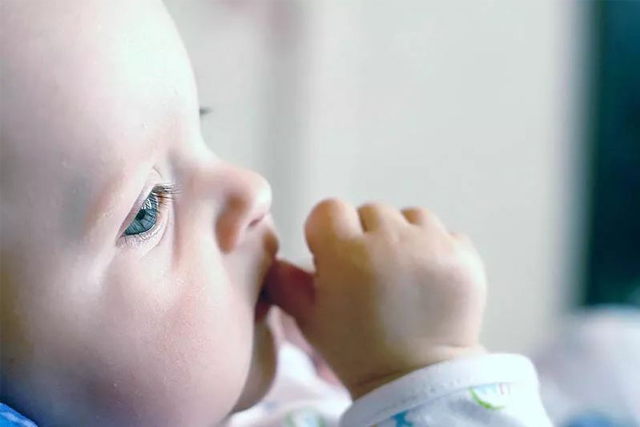
- Hiccups
You can give small amounts of milk or water when your baby has hiccups. You need to keep your baby warm and try not to let your baby breathe in air when you feed him/her. You can also give your baby a gentle massage on the chest and abdomen to reduce the symptoms of hiccups and stop them.
- Anti-mosquito bites
Do not use adult mosquito repellent products or mosquito scents for babies under three months,physical repellent methods can be used or special baby wipes can be used to repel mosquitoes.

- Food allergies
It is relatively common for babies to be allergic to certain foods, especially when trying new foods. The usual reaction to food allergies is a rash or diarrhoea and vomiting. Therefore, when adding new foods to your baby, you should add a single food first to find out what you are allergic to in the event of an allergy, and then add a mixed variety of complementary foods once your baby has adapted to the single food.
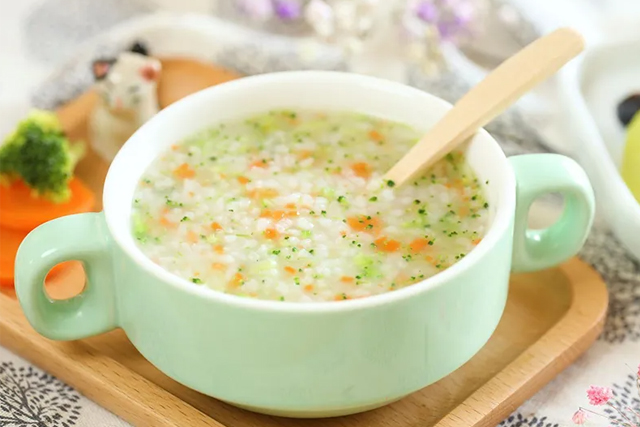
Caring for a newborn baby is a job that requires care and patience, so new parents should spend more time learning about the various aspects of newborn care and adopt scientific care to keep their babies healthy.

